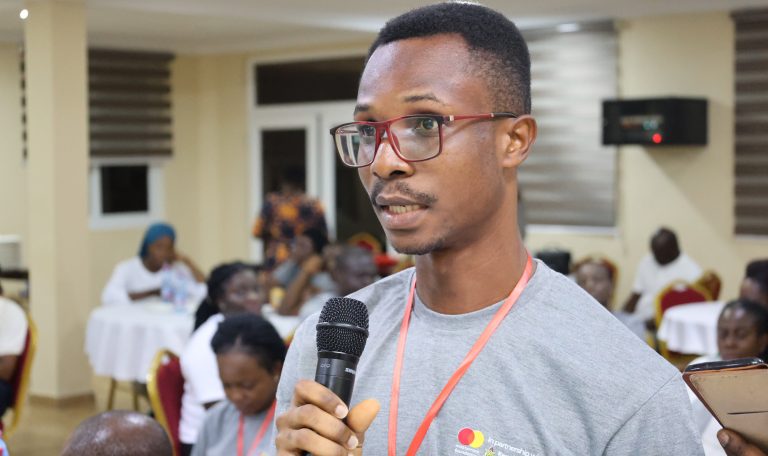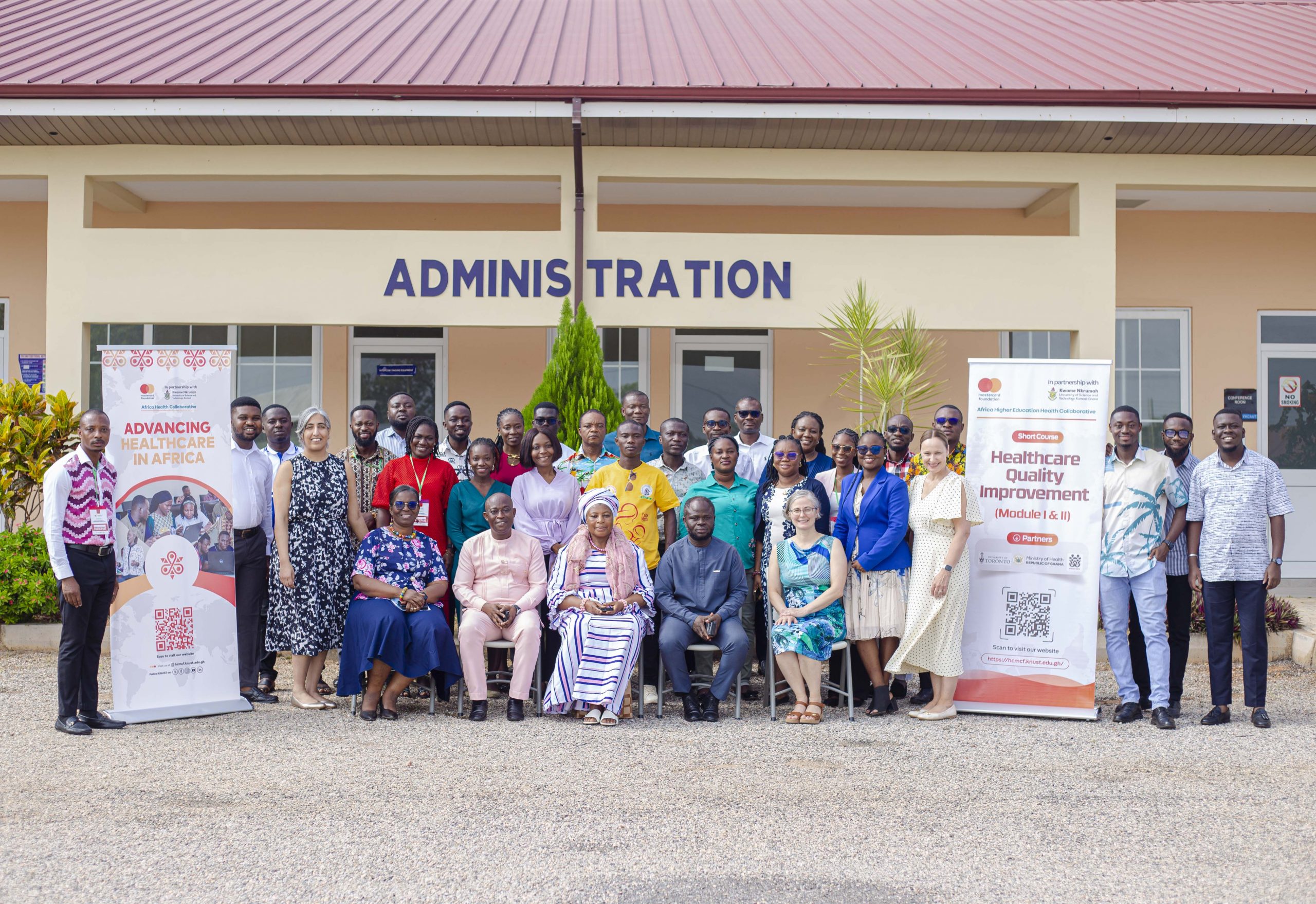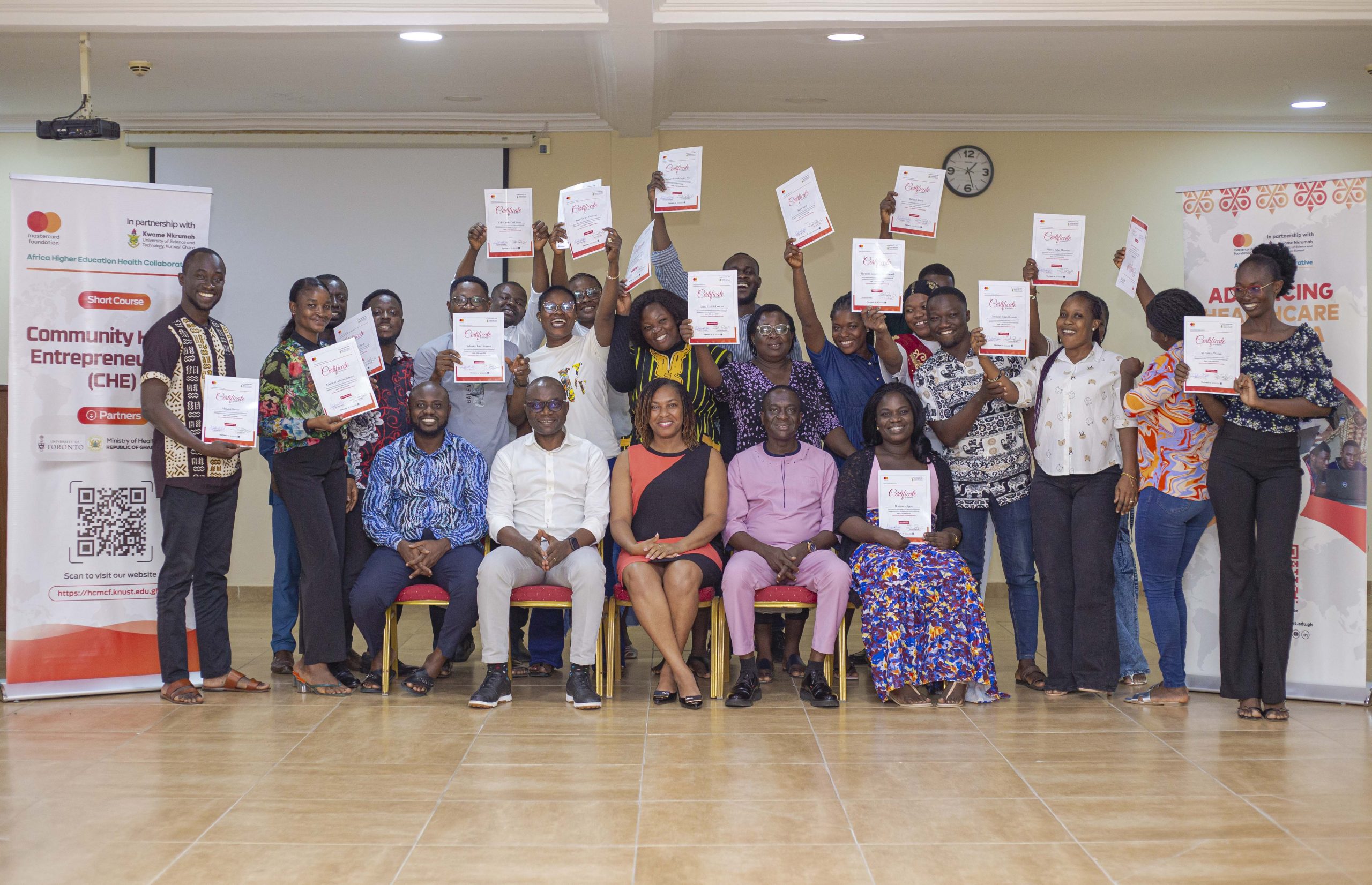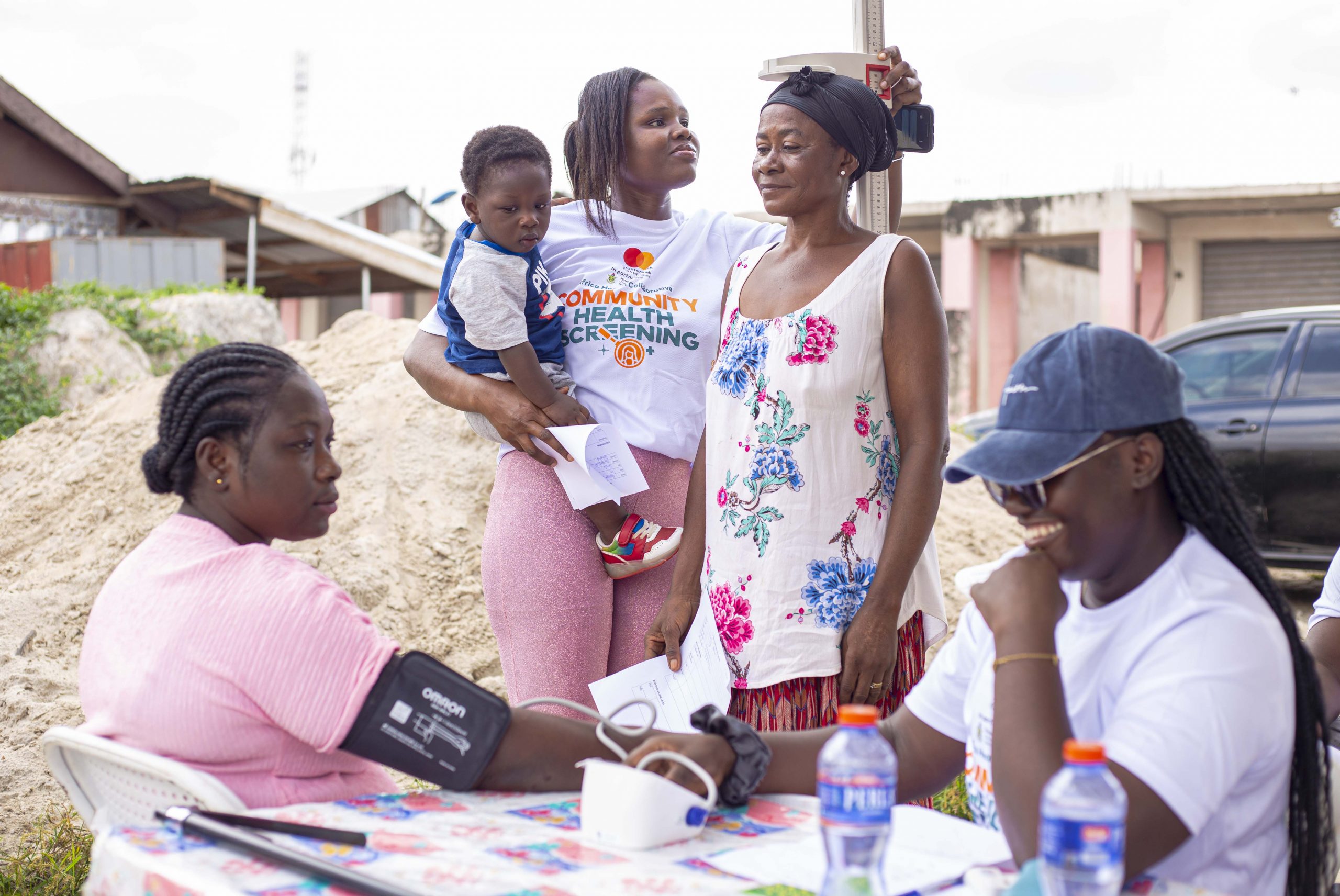Africa Higher Education Health Collaborative-KNUST, in collaboration with the Mastercard Foundation, concludes the workshop for the second cohort of the Palliative care short course module II. #TheCourseExperience features insights from participants reflecting on their impact with module I.
‘They saw that it wasn’t all about the death’-Prince Aidoo
After completing module I of the Palliative Course, Prince Aidoo, a nurse with Adidome Government Hospital in the Volta Region thought of a chitchat with the Clinical Care Coordinator on how his training could be beneficial to the facility.
They concluded on building the capacity of his colleagues.
“We had a little training for some staff on palliative principles and what goes into palliative,†he stated.

But that wouldn’t pass without a setback.
Mr. Aidoo recounts “most staff were not that interested because they felt it was too emotional and they couldn’t cope with such issues.â€
Nonetheless, Prince was relentless. “It was a one man job going round but as time went on, some became interested because they saw that it wasn’t all about death, there pain management and all that,†he recalls.
With the acquisition of vital knowledge in the module II of the course, Prince is poised to make more impact.
“As we’ve learnt how to fully integrate into our healthcare system, we’ll use those modules and see how best we can expand to other aspects of care in the facility,†he’s optimistic.
 ‘I will soon set up a team’- Daniel Akuamoah Asirifi & Ms. Patience Baffoe
Daniel Akuamoah Asirifi, a Physician Assistant with the Presbyterian Hospital, Agogo in the Ashanti Region of Ghana after the first module was also in a fix with regards to application of skills acquired.
Although Mr. Asirifi was lucky to find himself with physicians who have knowledge about pediatric palliative care, there is no conscious effort to have a palliative team.
He’s therefore keen on changing the story.
“I’m hoping to help set up a palliative team in my facility,†he’s hopeful.

Ms. Patience Baffoe, a nurse from the Sunyani Teaching Hospital in the Bono Region didn’t keep the knowledge to herself after going through the first module.
“Half of our unit, the nurse there know palliative care,†she noted.
After the module II, Patience also hopes to set up a palliative care unit at the facility.

‘Tuesdays for clinics and Thursdays for home visits’.-Debra Yaa Piesie
“We had heard of palliative care but we didn’t know the details and how to apply it in our setting.â€Â Ms. Debra Yaa Piesie, a nurse at SDA Hospital, Asamang in the Ashanti Region of Ghana was in this situation until she was introduced to module I.
Partnering her administrator who was familiar with palliative care, she set up a clinic.
“Every morning we did general ward rounds. We go from ward to ward to identify the patients who need palliative care and there was one physician we told to give awareness to the physicians when they go for their clinical meetings so that they can also bring internal referrals from the ward to the palliative team,†she said.

Soon, other staff joined the team. Tuesdays were set aside for clinics and Thursdays for home visits.
“Every week, there was an activity,†she said.
Despite these activities she’s observed fear with drug administration among the team members. She hopes to improve the situation after partaking in the second module.
“I’ve realized that I need to organize in-service training for those who took part in the first one to have confidence in administering palliative care services to our patients,†she noted.
About Palliative care short course
The Palliative care short course by the Africa Higher Education Health Collaborative in partnership with Mastercard Foundation is meant to build the capacity of beneficiaries to provide quality healthcare for patients with serious illnesses, such as cancer.
The workshop which is in partnership with the Kwame Nkrumah University of Science and Technology, University of Toronto and the Ministry of Health is facilitated by the Health Employment pillar of the Collaborative.
The Health Employment pillar led by Dr. Kofi Akohene Mensah aims to expand and improve current capacities to train primary healthcare workers.





